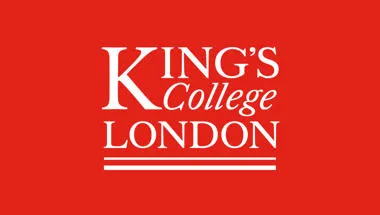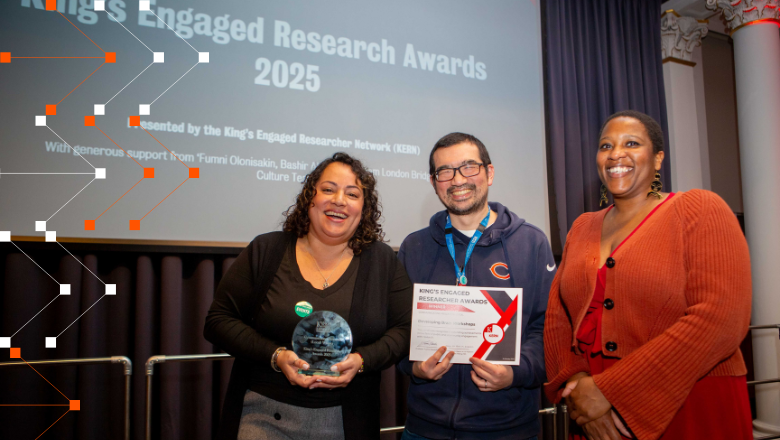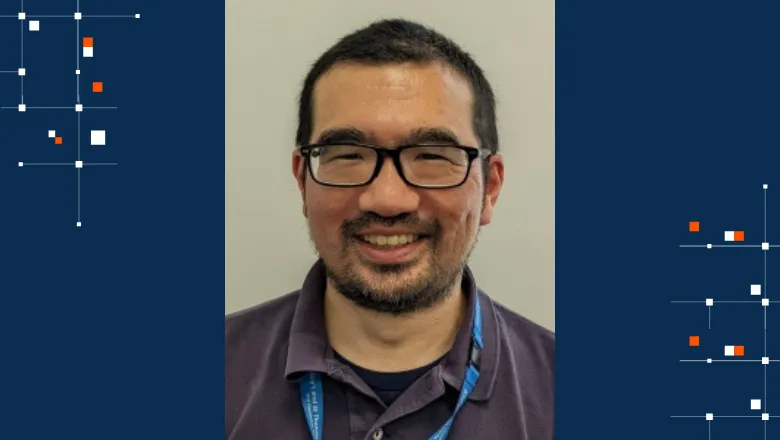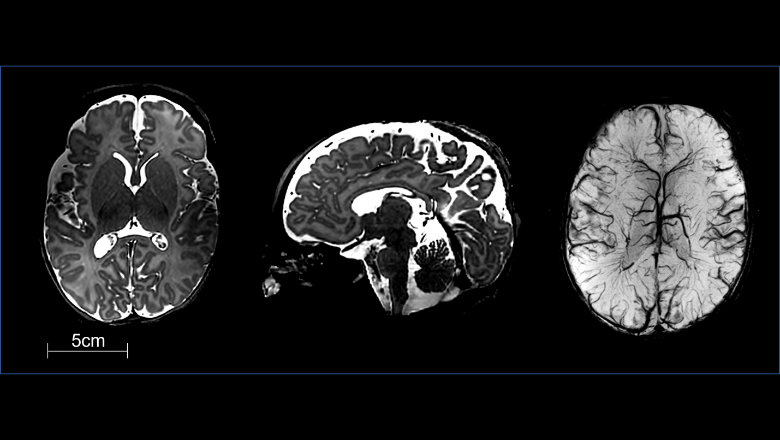Women & Children's Health MSc
Gain insight and knowledge of how translation of basic science and clinical observation can lead to cutting edge research studies into new diagnostic and treatments both in the UK and in low resource settings globally.

Head of the Department of Early Life Imaging
Professor Arichi is an MRC Senior Clinical Fellow and Head of the Research Department of Early Life Imaging, King’s College London. He received his PhD from Imperial College London in 2012, following the award of a Chain-Florey Fellowship from the MRC Clinical Sciences Centre. The work of his thesis focused on the optimisation of functional MRI techniques for studying activity in the newborn brain. He was appointed as an MRC Clinician Scientist in March 2017. Prof. Arichi also holds an honorary position as a Consultant in Paediatric Neurodisability at the Evelina London Children's Hospital. His clinical work is focused on the early identification and resulting management of the disabilities associated with perinatal brain injury.
Research interests His current work aims to apply non-invasive imaging techniques (EEG, functional MRI and simultaneous EEG-fMRI, motion-tracking methods) to characterise the development of functional activity in the human brain, during fetal and preterm life and following brain injury. This is particularly focused on understanding how early somatosensory and motor processing relates to brain development and behaviour. He is also aiming to gain a deeper understanding of the underlying biophysics of the fMRI signal in the newborn brain. He also holds a visiting position in the Human Robotics group at Imperial College London, where they are developing novel tools for use in the MRI scanner and automated rehabilitative strategies for young infants who have suffered brain injury.

A prospective cohort study evaluating the impact of inflammation, itch and sleep disturbance on the brain, mental health and cognition, in patients with eczema.
Project status: Ongoing
Members of the School of Biomedical Engineering & Imaging Sciences were celebrated for their work at the King's Engaged Research Awards ceremony, securing two...

Researchers from King’s College London have developed new eye tracking technology which enables young children to engage in an immersive Virtual Reality (VR)...
Dr Tomoki Arichi is the Head of the Department of Early Life Imaging at the School, and an Honourary Consultant at the Evelina London Children's Hospital. We...

Researchers and clinicians have scanned new-born babies in an ultra-high-field strength 7T MRI scanner for the first time in the UK.

The researchers say they hope this advancement will make it easier for those who find having a MRI scan challenging such as children, people with cognitive...

The results help to understand what the normal trajectories of white matter look like so they can be used as a reference for when problems arise

The award follows from Dr Arichi's existing MRC Clinician Scientist Fellowship awarded in March 2017

It is the first time researchers have induced activity in the neonatal brain and has great implications for treatments


Inspiring talks from two of our new professors about their work, their specialisations, and their journeys to where they are today.
Please note: this event has passed.

A prospective cohort study evaluating the impact of inflammation, itch and sleep disturbance on the brain, mental health and cognition, in patients with eczema.
Project status: Ongoing
Members of the School of Biomedical Engineering & Imaging Sciences were celebrated for their work at the King's Engaged Research Awards ceremony, securing two...

Researchers from King’s College London have developed new eye tracking technology which enables young children to engage in an immersive Virtual Reality (VR)...
Dr Tomoki Arichi is the Head of the Department of Early Life Imaging at the School, and an Honourary Consultant at the Evelina London Children's Hospital. We...

Researchers and clinicians have scanned new-born babies in an ultra-high-field strength 7T MRI scanner for the first time in the UK.

The researchers say they hope this advancement will make it easier for those who find having a MRI scan challenging such as children, people with cognitive...

The results help to understand what the normal trajectories of white matter look like so they can be used as a reference for when problems arise

The award follows from Dr Arichi's existing MRC Clinician Scientist Fellowship awarded in March 2017

It is the first time researchers have induced activity in the neonatal brain and has great implications for treatments


Inspiring talks from two of our new professors about their work, their specialisations, and their journeys to where they are today.
Please note: this event has passed.